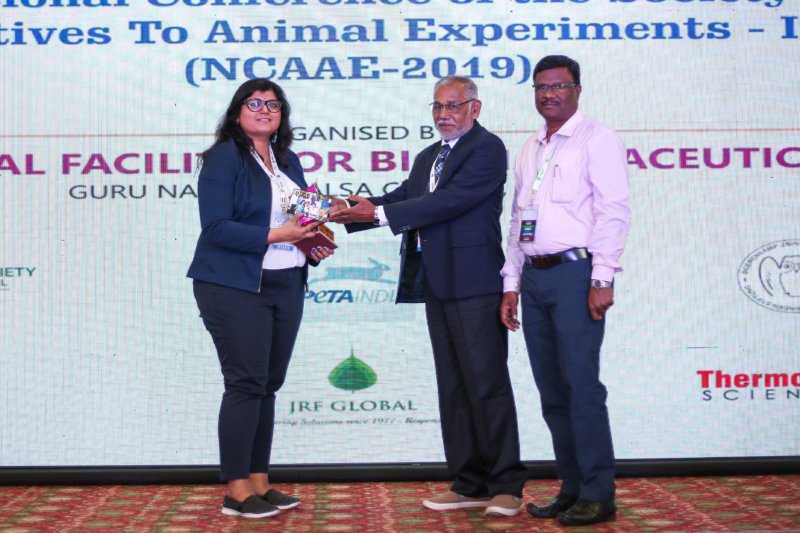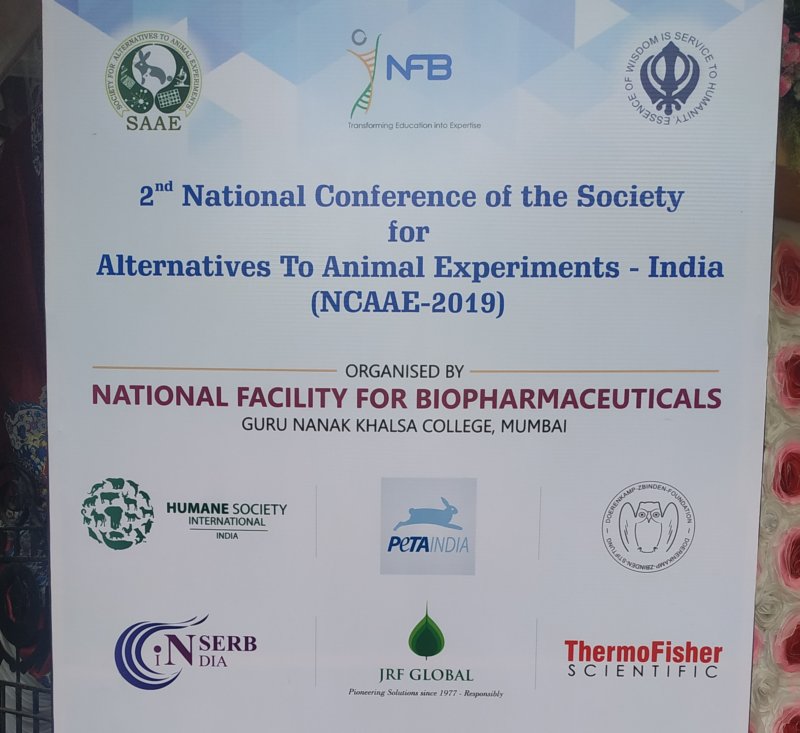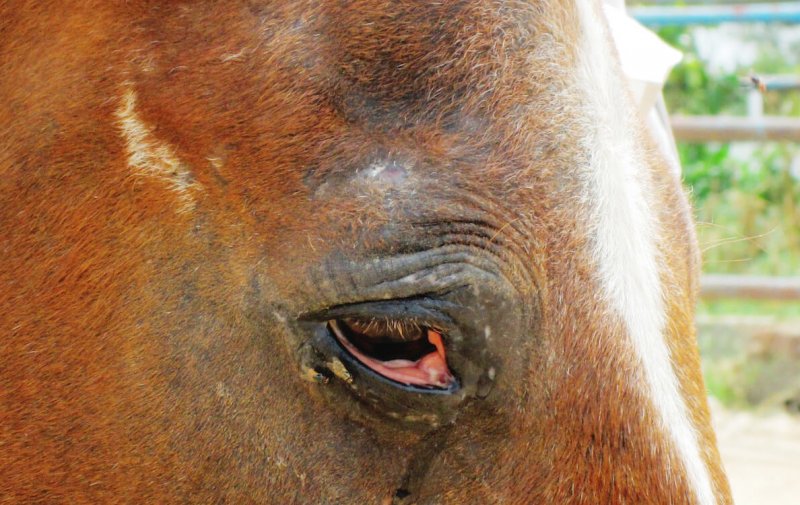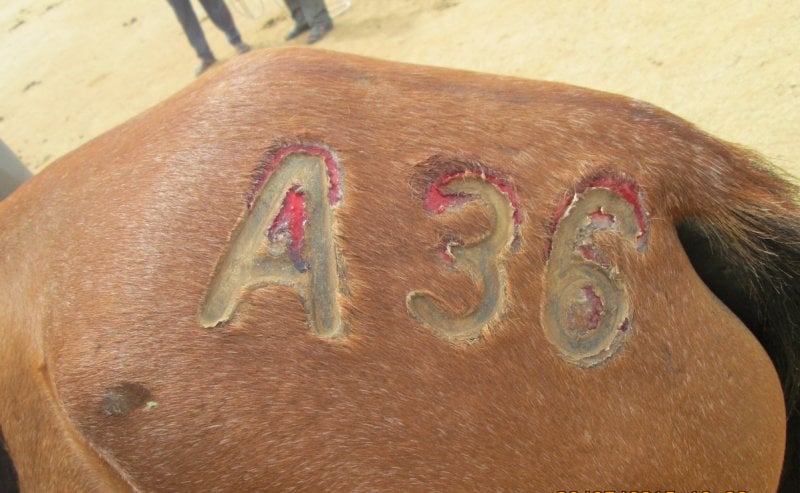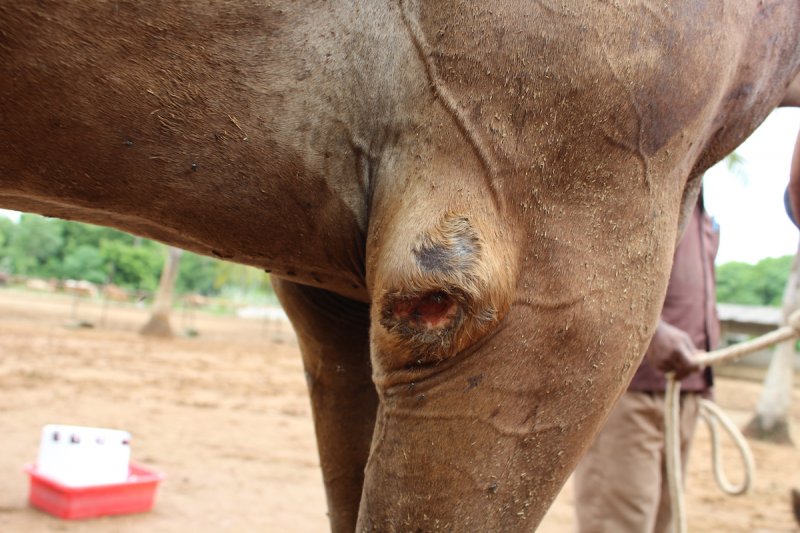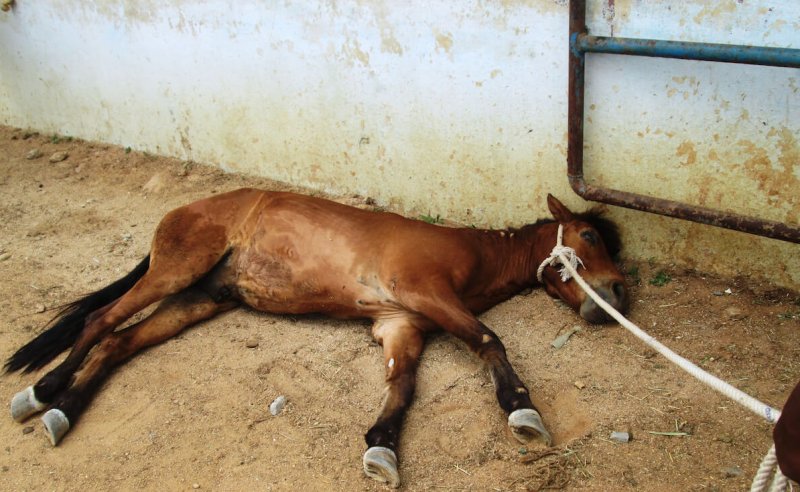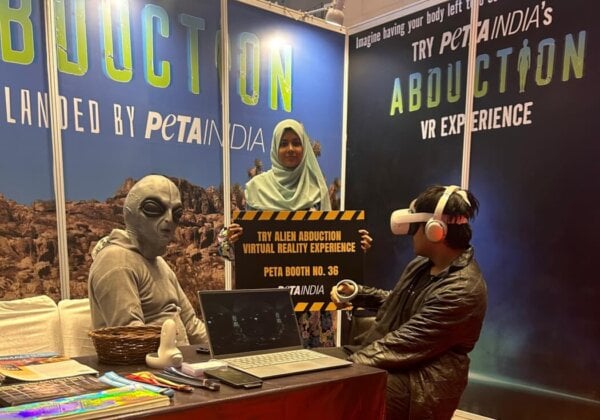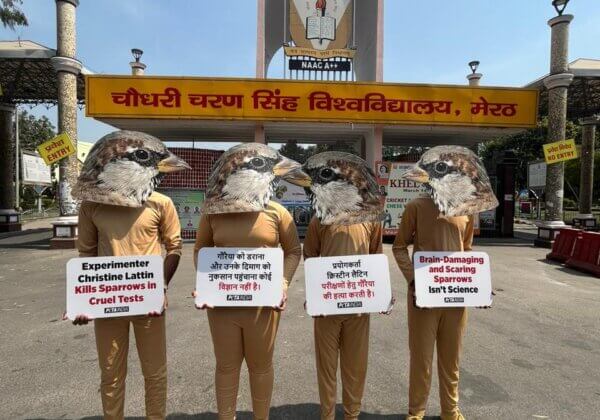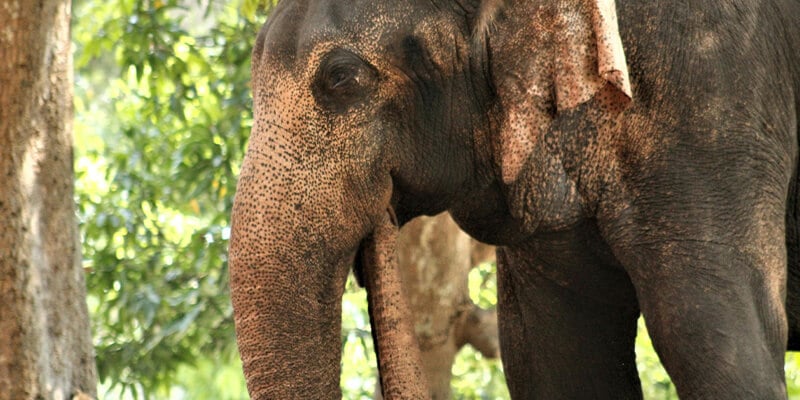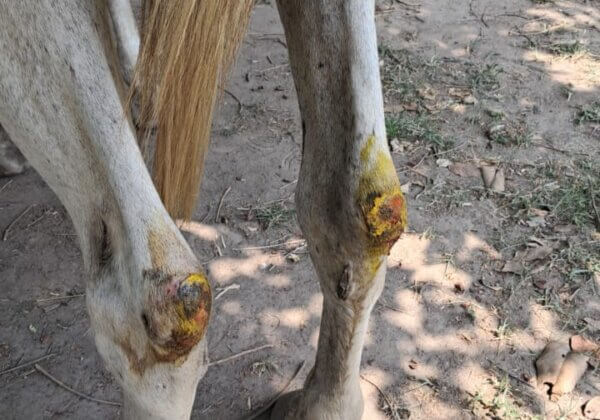PETA India Leads the Charge Against Animal Experiments
PETA India is proud to be one of the sponsors for of the prestigious National Congress on Alternatives To Animal Testing. This annual conference allows for the sharing of information and updates on safety assessments and regulatory guidelines that are emerging in drug discovery, environmental risk assessment, and cosmetics sectors production. We were also invited to make a presentation before national and international delegates, scientists, and students. Simply put: This is a big deal.
A scientist from PETA India is also one of the founding and lifetime members of the Society for Alternatives to Animal Experiments (SAAE), which partnered with the conference. This society provides a platform for all scientists working in the fields to create alternatives to animal experiments in drug innovation and toxicity testing to interact, exchange ideas, and update their knowledge in their relevant fields.
Members of our science team used the opportunity to discuss talk about the need for non-animal recombinant antitoxins, discussing the limitations of equine equine-derived antitoxins and antibodies and as well as the benefits of developing of new treatments through non-animal test methods.
In 2015, a team appointed by the Animal welfare Welfare Board of India, including people from PETA India, investigated 10 equine facilities and documented widespread abuse and neglect of thousands of horses, mules, and donkeys confined to filthy, crowded facilities and made to stand in their own waste. Anaemia, painful lesions, digestive tract diseases, skin and dental problems, hoof abnormalities, infections, and malnutrition were commonplace. Living in a constant state of fear and anxiety, many horses resisted and struggled to get away when workers approached them to extract blood. Inspectors also found slowly dying equines who were had been denied euthanasia.
Today — because experiments on animals are cruel, expensive, and generally inapplicable to humans – the world’’s most forward-thinking scientists have moved on to developed and use methods for studying diseases and testing products that replace animals and are actually relevant to human health. The PETA International Science Consortium Ltd, is funding the development of a diphtheria antitoxin from a human source- without the use of any animals. The treatment for diphtheria currently involves the administration of an equine- derived drug which can cause adverse reactions in the patients when administered. With this project, we aim to have a drug which would be effective in treating diphtheria infection without harming humans or other animals.


